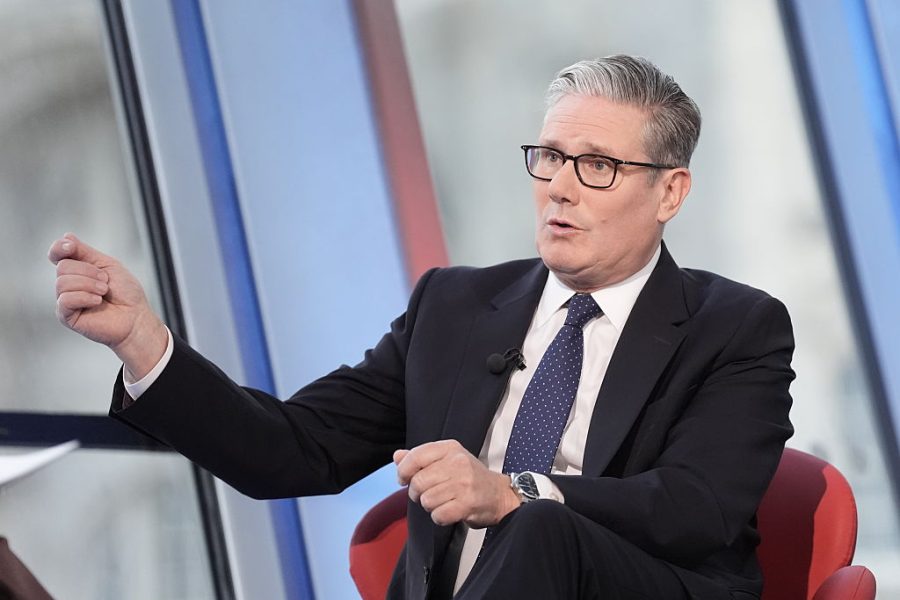I blame The Spectator. The chain of events that has led me to be christened and confirmed in the Anglican Church began with an article I wrote for Spectator Life in January. I had spent New Year’s Eve with a friend, a former vicar, who had lost his faith and honourably resigned his living as a result. He claimed that most contemporary clergy no longer believe in the basic tenets of Christian doctrine: the divinity and miracles of Christ; the Virgin birth; the resurrection; life after death; even the very existence of God. I wrote an article bemoaning this, and mourning the decline of the Church as an essential element of the nation.
The Revd Dr Edward Dowler, the recently appointed Dean of my home city, Chichester, indignantly wrote to the magazine refuting the claim and affirming that here at least, the Christian faith is alive and well. Curious to learn more, I met Dr Dowler, was deeply impressed by this patently holy man and, at the end of our conversation – much to my own surprise – I asked to be baptised and confirmed in the Church of England. He agreed, and has been my mentor in the process.
What brought me to take this momentous step? I certainly have no family history of faith. I was raised in a non-religious household where my father reacted against a strict Welsh Methodist childhood by becoming a militant non-believer (he once wrote to the Archbishop of Canterbury to ask why priests wore ‘those ridiculous robes’) and my mother, though nominally Anglican, rarely went to church.
My parents were, however, tolerantly broad-minded, and when I was five or six bought me a King James Bible in Chichester. I still recall my wonder as I opened it and encountered the poetry of Genesis: ‘In the beginning was the Word…’ In the years that followed, at boarding schools, I attended daily Anglican services, learned prayers and hymns by heart, read lessons in chapel, even acquired an A-level in Divinity – but remained an agnostic.
The atheism of so many contemporaries, with their cheap sneers about a ‘sky fairy’, seemed much too definite for me. Richard Dawkins appeared just as fanatical in his rejection of religion as a fire-and-brimstone preacher of the Billy Graham or Ian Paisley variety. Besides, although no physicist, I understand that recent advances in quantum mechanics mean that the vulgar materialist view of the universe that caused so many Victorians to lose their faith has itself become outdated – and that modern science suggests that a controlling intelligence in the universe is at least as likely as Housman’s ‘heartless, witless nature’. When a hardened atheist like the late philosopher A.J. Ayer had a near-death experience that caused him to doubt his own disbelief, it seemed dishonest not to take another look at received religious faith. I have also experienced certain supernatural events that defy rational explanation.
I love the physical results of faith: the energy that led medieval masons to carve cathedrals they would never see completed, and I can’t resist a country church, breathing in its musty mystery in the spirit of Philip Larkin’s poem ‘Church Going’ – ‘If only because so many dead lie around’. I am lucky enough to live close to a cathedral visited by my favourite poets – Keats and Larkin – and even if religion is, as Larkin jibed, ‘a vast, moth-eaten musical brocade / created to pretend we never die’, I choose to believe with him the ‘almost truth’ that ‘what will survive of us is love’.
I had never been tempted by New Age nonsense, nor any of the modish Eastern cults or gurus that lured so many members of my generation. As writers like Jordan Peterson and Tom Holland argue, our culture has been ineluctably shaped by Christianity, whether we believe in it or not, and anyone steeped in that atmosphere cannot wholly enter into Oriental ways of being such as Zen Buddhism or yoga. As for Islam? No thanks, not for me.
But what about Roman Catholicism, that traditional refuge of the convert? As a patriotic Anglo-Welshman, I have always regarded it – like communism – as an oppressive and corrupt foreign creed that for centuries tried to subvert or conquer my country. No, for all its manifold faults and absurdities, my tribe is the dear old C of E, and my conservative mindset that of sturdy English values of independence, freedom of thought and love of liberty that it once embodied.
I enter the mystery of faith like Albert Camus, a non-believer who recommended doing good just for the hell of it, rather than to receive any divine reward. The rat-repelling protagonists of his novel The Plague fight disease and heal the sick because it is better to light a candle than curse the universe for its darkness.
For all its manifold faults and absurdities, my tribe is the dear old C of E
My work as a historian introduced me to the Christian martyrs of the German resistance to Nazism, like the theologian Dietrich Bonhoeffer, who said moments before he was hanged: ‘This is the end – for me the beginning of life’. Or the jurist Fabian von Schlabrendorff, who attributed his endurance of fiendish torture to ‘prayer and only prayer’ from his family and friends, giving him the strength to hold out and survive.
These men were in the same tradition as our own Bishop Hugh Latimer, who told his fellow martyr Nicholas Ridley as they were consumed by fire: ‘Be of good courage, Master Ridley, and play the man. For we shall this day light such a candle in England that I trust by God’s grace shall never be put out.’ It is for this indomitable spirit – not foolish debates about gay sex – that I am drawn even to our debased Church today.
If we are fortunate, we may not have to endure the agonies of a Bonhoeffer or a Latimer, but no one gets out of this world alive, and as death approaches, I feel a pressing need to enter the communion of my forebears and repeat the prayers and rituals that have been murmured and sung for millennia. Above all, of course, there is the supreme sacrifice of Jesus Christ himself. Whatever we understand the phrase ‘Son of God’ to mean, for me Christ is the perfect man – human, yet imbued with the superhuman attributes of a Godhead who loves all creation.
When I pray, I am not presenting God with a banal wish list of requests, like a cure for cancer, or looking for ultimate answers to the problems of pain or injustice, but simply creating a space to ask for forgiveness for my own sins and errors. So, as I gladly accept Pascal’s wager on the existence of God, and gratefully embrace the faith of my fathers, I can say in all truth this Easter: ‘Christ is risen – he is risen indeed’.








Comments